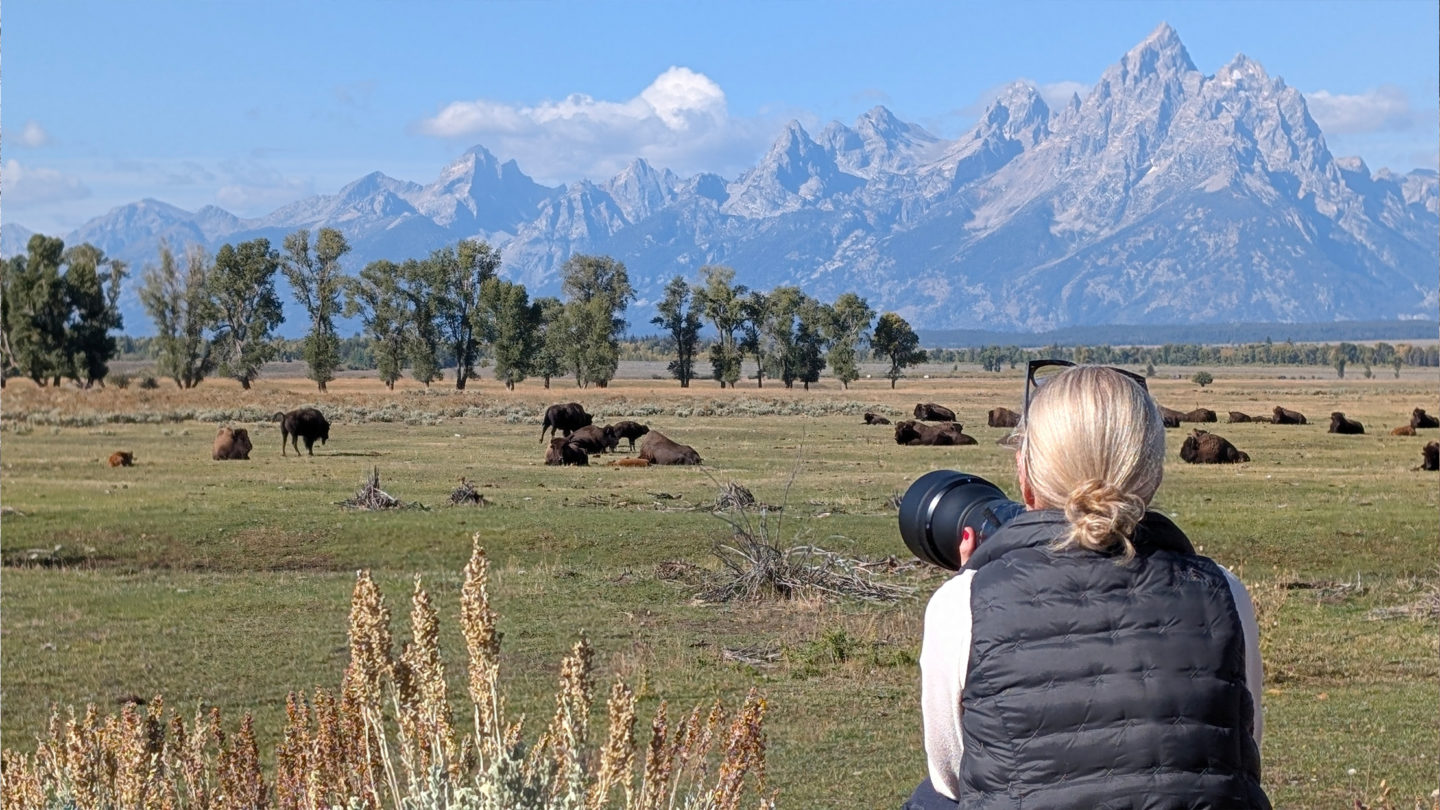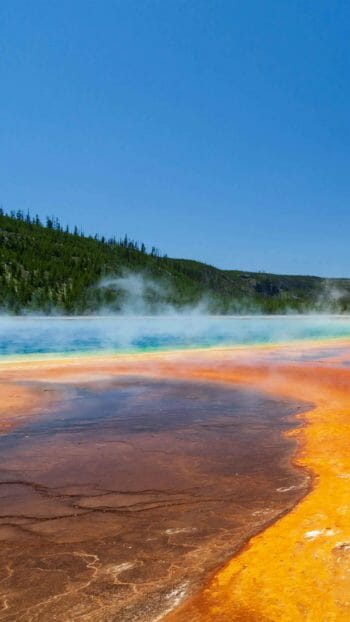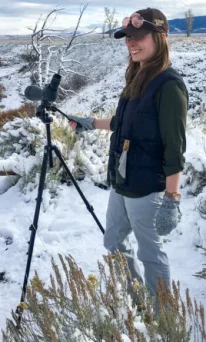Yellowstone National Park is one of the most extraordinary natural landscapes on Earth… an ecosystem defined by geothermal wonders, abundant wildlife, and dramatic wilderness. Every year, millions of visitors come to witness its beauty, but with that privilege comes responsibility. Practicing Leave No Trace and engaging in responsible tourism ensures that the park’s delicate balance is preserved for future generations.
At Yellowstone Safari Company, stewardship is at the heart of everything we do. During this government shutdown, citizen stewardship is important now, more than ever, by every visitor to our parks. Our guided safaris are designed not only to reveal Yellowstone’s incredible wildlife and geology, but also to inspire guests to explore ethically and sustainably.
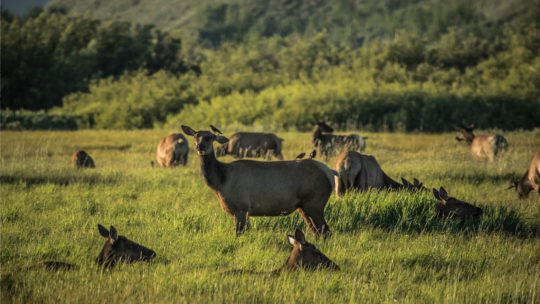
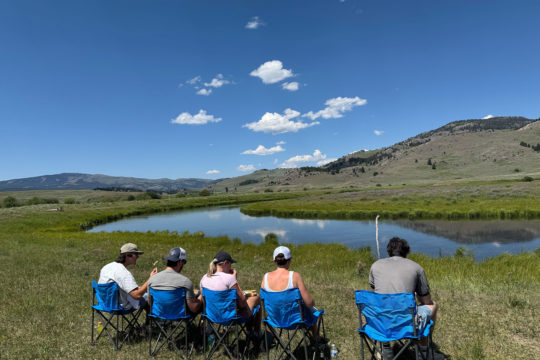
What Does “Leave No Trace” Mean?
The Leave No Trace ethic is built around seven core principles that guide outdoor recreation. These guidelines help reduce human impact and protect fragile environments like Yellowstone’s geothermal basins, grasslands, and river corridors.
The Seven Principles of Leave No Trace:
- Plan Ahead and Prepare – Know park rules, weather patterns, and wildlife safety protocols.
- Travel and Camp on Durable Surfaces – Stay on designated trails and boardwalks to protect thermal features and fragile soil.
- Dispose of Waste Properly – Pack out all trash and food waste to keep habitats clean.
- Leave What You Find – Preserve cultural and natural resources by leaving all rocks, plants, and artifacts undisturbed.
- Minimize Campfire Impact – Use existing fire rings or portable stoves in approved areas.
- Respect Wildlife – Observe animals quietly and from a safe distance; never feed them.
- Be Considerate of Others – Help preserve the serenity of Yellowstone by keeping noise low and sharing space respectfully.
These simple principles are the foundation of responsible exploration in any natural area, but in Yellowstone, they are essential.
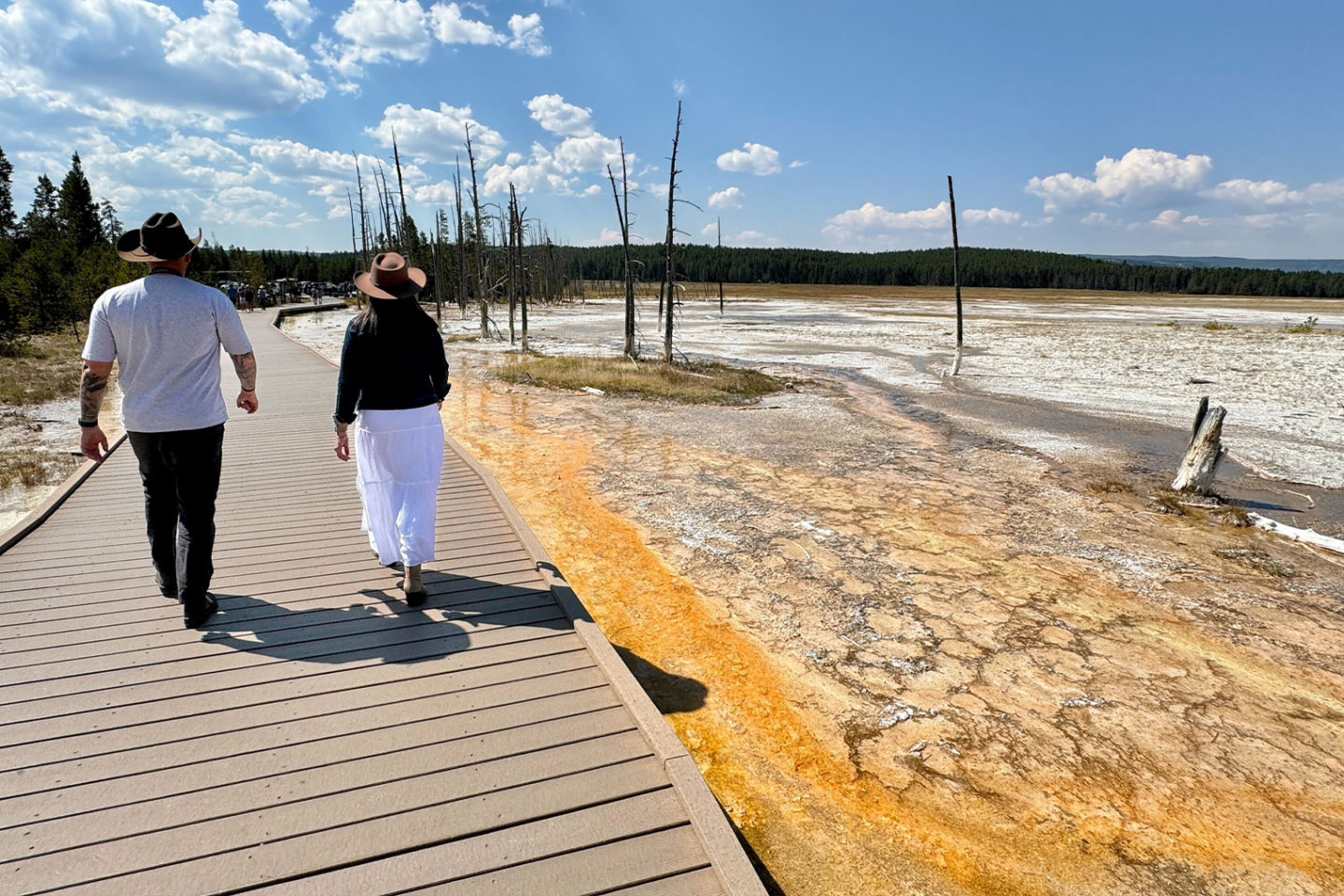
Responsible Tourism in Yellowstone
Responsible tourism means making mindful choices that support both the environment and local communities. In Yellowstone, this means engaging with the park in a way that honors its ecological and cultural significance.
Yellowstone Safari Company integrates responsible tourism into every guided tour:
- We maintain small group sizes to minimize impact and maximize educational value.
- Our guides use professional optics so guests can observe wildlife safely and ethically.
- We follow established roads, paths, and pullouts, ensuring that wildlife is never approached or disturbed.
- Every tour emphasizes education, helping guests understand the importance of conservation and stewardship.
By participating in guided safaris that prioritize ethical practices, visitors actively contribute to the protection of Yellowstone’s wildlife and landscapes.
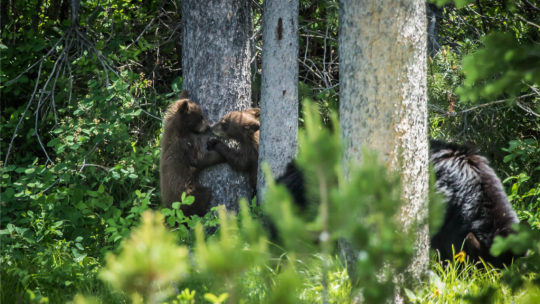
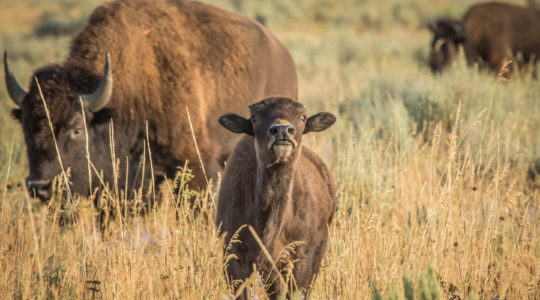
Why Responsible Travel Matters in Yellowstone
Yellowstone’s ecosystem is complex and interconnected. Small actions, like straying off-trail or leaving behind food scraps, can have large and lasting effects. For example, feeding wildlife can alter natural behaviors, while trampling fragile vegetation near thermal areas can cause long-term damage to rare plant species.
Responsible travel helps maintain:
- Healthy wildlife populations, free from human dependency.
- Clean water systems, protected from contamination and waste.
- Preserved landscapes, allowing plants and animals to thrive naturally.
- Authentic visitor experiences, ensuring that the park remains a true wilderness.
Every visitor plays a part in protecting this remarkable place.
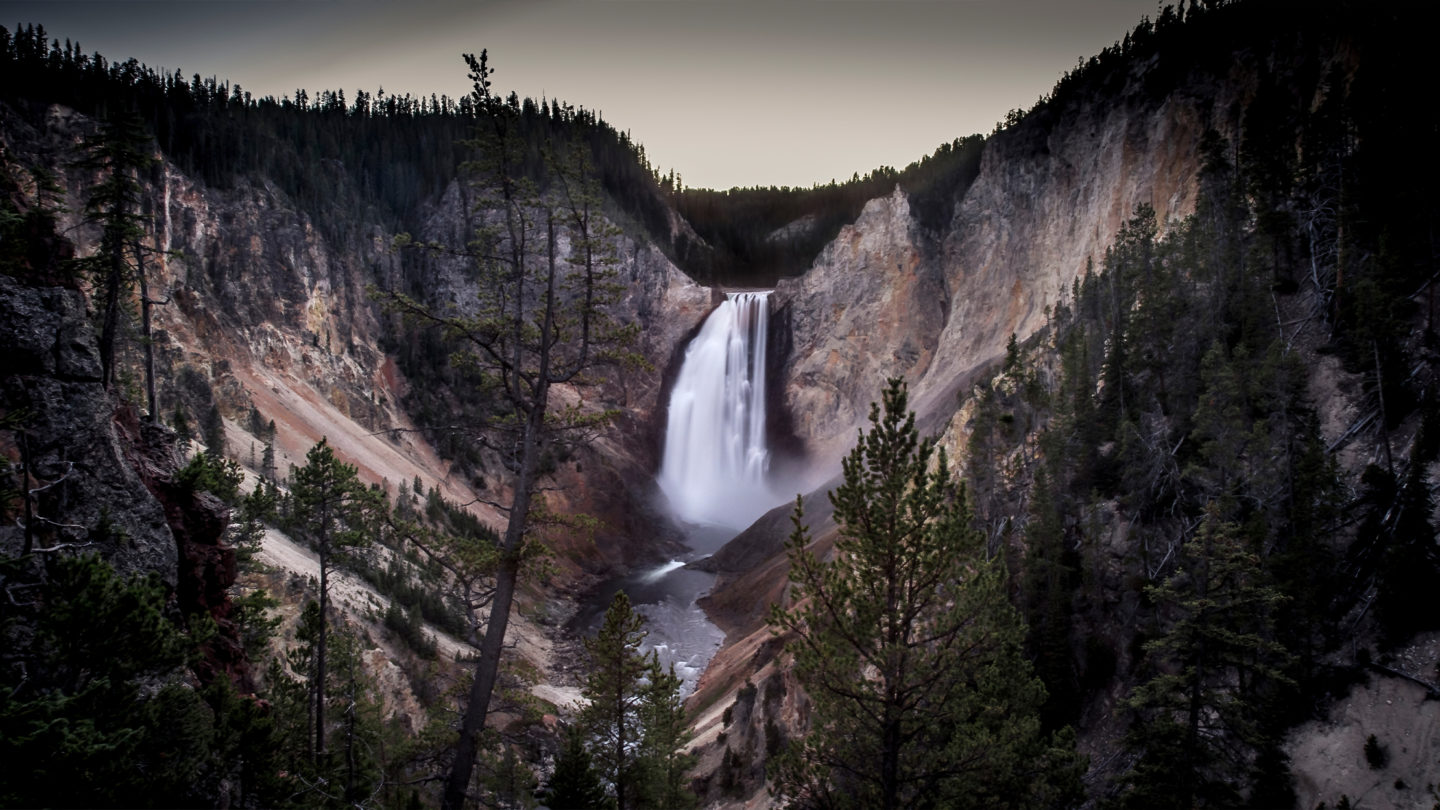
The Role of Guides in Sustainable Tourism
Professional naturalist guides are vital to responsible travel in Yellowstone. They not only interpret wildlife behavior and geology but also teach guests how to observe respectfully and sustainably.
At Yellowstone Safari Company, our guides model conservation-minded practices by:
- Maintaining proper wildlife viewing distances (100 yards for bears and wolves, 25 yards for all other animals).
- Using spotting scopes and binoculars to minimize intrusion.
- Educating guests on park regulations and wildlife safety.
- Encouraging stewardship through storytelling and ecological interpretation.
Our goal is to foster an appreciation for wildness that inspires long-term respect and advocacy.
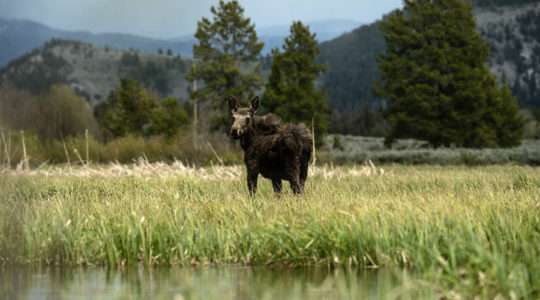
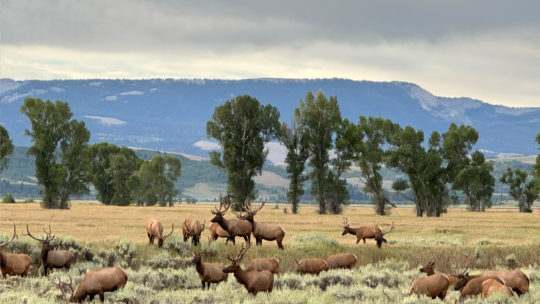
A Shared Commitment to Stewardship
Responsible tourism is about more than individual behavior, it’s a shared commitment between guides, visitors, and communities. At Yellowstone Safari Company, we see every tour as an opportunity to educate and empower travelers to become stewards of the natural world.
By following Leave No Trace principles, respecting wildlife, and traveling thoughtfully, each of us helps preserve the spirit of Yellowstone. Together, we can ensure that the park remains as wild and magnificent for the next century as it is today.
FAQs
Why is Leave No Trace important in Yellowstone National Park?
Leave No Trace practices help protect Yellowstone’s fragile ecosystems, wildlife habitats, and geothermal features from damage caused by human activity.
What does responsible tourism mean?
Responsible tourism means traveling in a way that supports conservation, respects local communities, and minimizes environmental impact.
How can I be a responsible visitor in Yellowstone?
Stay on trails, observe wildlife from a safe distance, avoid single-use plastics, and travel with reputable, conservation-focused guides.
Are Yellowstone Safari Company tours eco-friendly?
Yes. All tours are designed with sustainability in mind: small groups, ethical wildlife viewing, and Leave No Trace practices are central to every experience.
How does responsible tourism benefit local communities?
Ethical travel supports local economies, promotes conservation awareness, and encourages stewardship of public lands for future generations.

